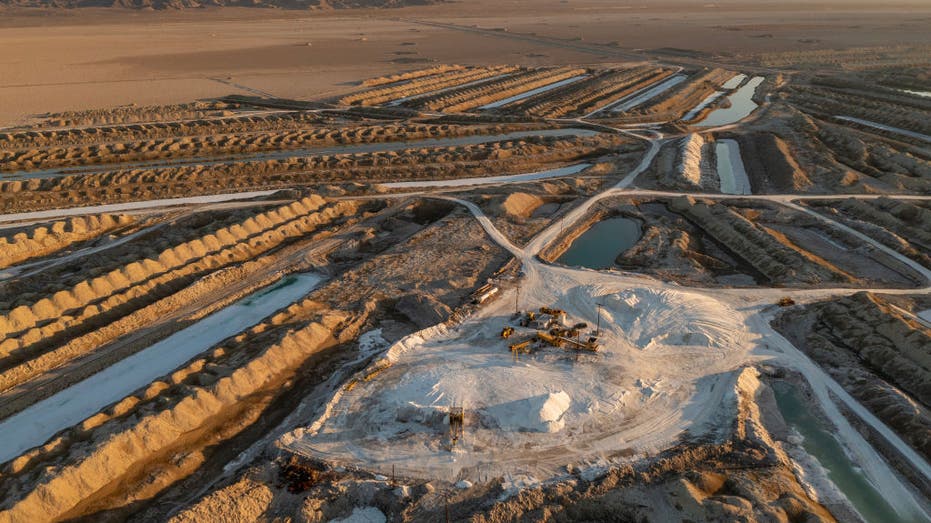US, Japan announce partnership on critical mineral supply chains
Critical minerals covered by agreement include cobalt, graphite, lithium, manganese, nickel
US leans on China for minerals amid lack of production
Hightower Resource Advisors CEO Tracy Shuchart says the U.S. is dependent on China for materials needed for producing "green energy" amid the copper supply shock in the country on "Making Money with Charles Payne."
The U.S. and Japan announced an agreement to strengthen and diversify the supply chains for critical minerals like those used in electric vehicle batteries, semiconductors and other cutting-edge technologies.
Under the agreement, which took effect immediately after it was signed on Tuesday, the U.S. and Japan agreed to partner in strengthening supply chains of critical minerals including cobalt, graphite, lithium, manganese and nickel. The two countries committed to taking domestic actions to address non-market policies of other countries that distort trade in critical minerals and not impose export duties between the U.S. and Japan on critical minerals.
The agreement comes as China plays a central role in global supply chains for critical minerals, boasting the majority of refining capacity for cobalt, lithium and nickel. It is also increasingly exercising control over raw commodities in areas rich in critical minerals. For example, the Nigerian government recently made a deal with a Chinese firm to develop the country’s first lithium processing plant.
CHINA’S NEWEST WEAPON TO NAB WESTERN TECHNOLOGY – ITS COURTS
The agreement established best practices for reviewing investments made within the two countries’ critical minerals sectors by foreign entities. It also included measures to promote resource-efficient approaches to reduce the demand for, and environmental impact of, virgin material extraction of critical minerals.
The U.S. and Japan will also improve information-sharing and enforcement actions related to labor rights violations in the extraction and processing of critical minerals. Additionally, the two countries will look to remedy violations of labor rights at entities linked to critical minerals supply chains and promote employer neutrality in union organizing.
U.S. Trade Representative Katherine Tai said the agreement "is proof of President Biden’s commitment to building resilient and secure supply chains."
US MOVES TO APPEASE ALLIES ON EV SUBSIDIES

Salt evaporation ponds are seen on Bristol Dry Lake where Standard Lithium Ltd. was preparing to use direct lithium extraction technology to capture lithium from brine that's drawn for evaporation to produce industrial minerals near Amboy, California (David McNew / Getty Images)
"Japan is one of our most valued trading partners and this agreement will enable us to deepen our existing bilateral relationship," Tai added. "This is a welcome moment as the United States continues to work with our allies and partners to strengthen supply chains for critical minerals, including through the Inflation Reduction Act."
"Facing the prospect of significant increase in demand of electric vehicle batteries, it is urgent to secure critical minerals which are essential to the production of clean vehicles," the office of Japan’s Ambassador to the U.S. Tomita Koji added in a press release. "The Agreement is envisaged to build robust supply chains through coordination between Japan and the U.S. and among like-minded countries with strengthened cooperation for ensuring sustainable and equitable supply chains for such critical minerals, including to promote the goals of the Inflation Reduction Act."
GET FOX BUSINESS ON THE GO BY CLICKING HERE
Tai’s office touted the agreement as memorializing the "shared commitment of the U.S. and Japan with respect to the critical minerals sector to facilitate trade, promote fair competition and market-oriented conditions for trade in critical minerals, advance robust labor and environmental standards, and cooperate in efforts to ensure secure, transparent, sustainable, and equitable critical minerals supply chains."




















